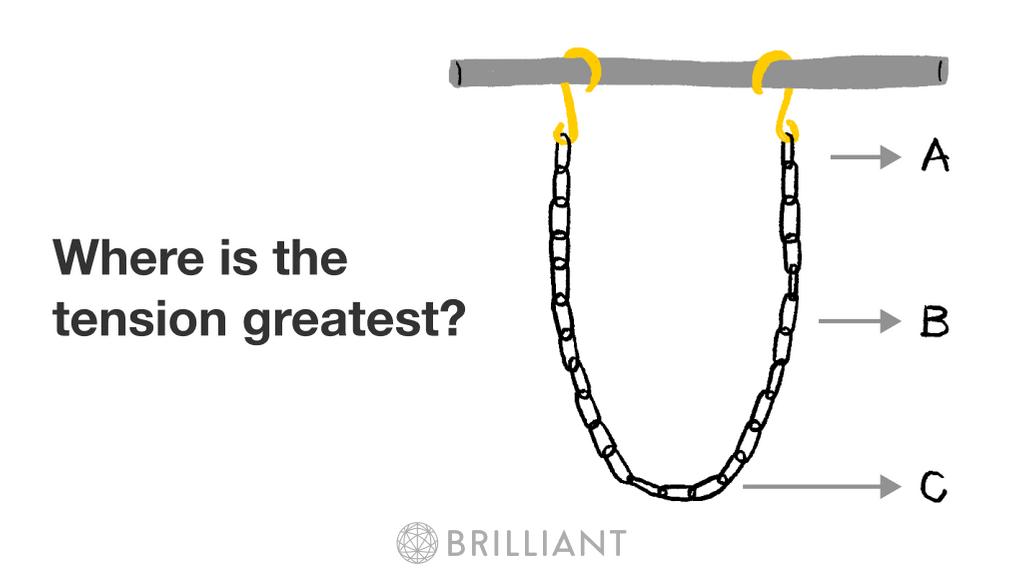
A chain hangs between two points in the same horizontal line. We want to compare the tension of the chain in 3 different points (A, B and C). Point C is lower than B and point B is lower than A.
We can answer this problem by calculating the tension at each point and using function analysis etc. But there is a much easier way to find the answer. First of all, it is essential to notice that the horizontal tension in any point is constant. Just take a small part of the chain and analyse each tension to the x-axis. Since this small part is in equilibrium, the horizontal tensions are equal and constant to a certain value. That is Tcosθ = C, where θ is the angle of the tangent and the horizontal level. So T = C/cosθ. Thus, the smaller the cosθ, the bigger the tension. Or the bigger the value of θ, the bigger the tension.
The angle θ is bigger at point A than at point B, and the angle at B is bigger than the angle at C.
So T(A) > T(B) > T(C).
Of course if we know the exact coordinates of the point we want, we can also calculate the value of tension. But that is a bit more difficult - we need to write down the equilibrium equation of the vertical axis. By doing so, and expanding in Taylor, we get that T = Ay + c, where A > 0, and y the height from the lowest point. Thus, since y(A) > y(B) > y(C), then T(A) > T(B) > T(C)
Source of image : BRILLIANT
Comments
Post a Comment